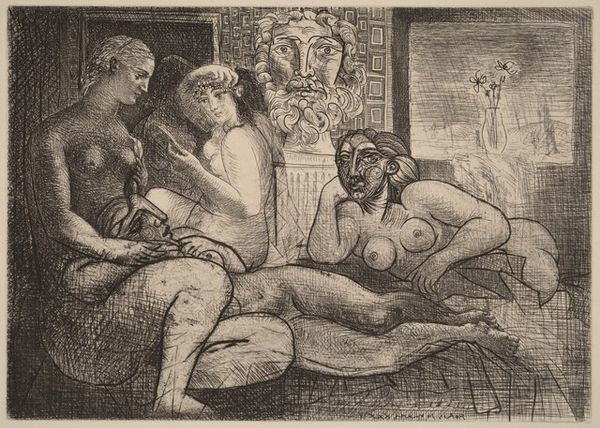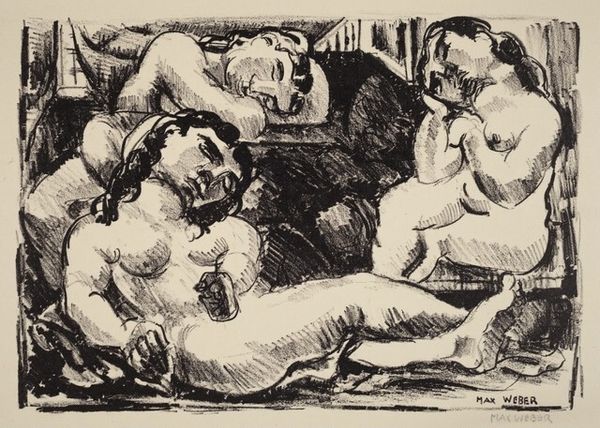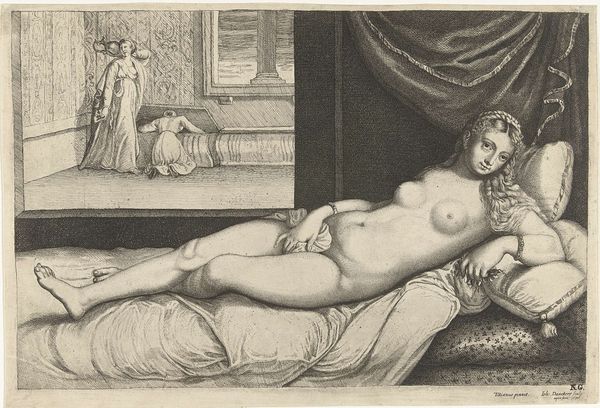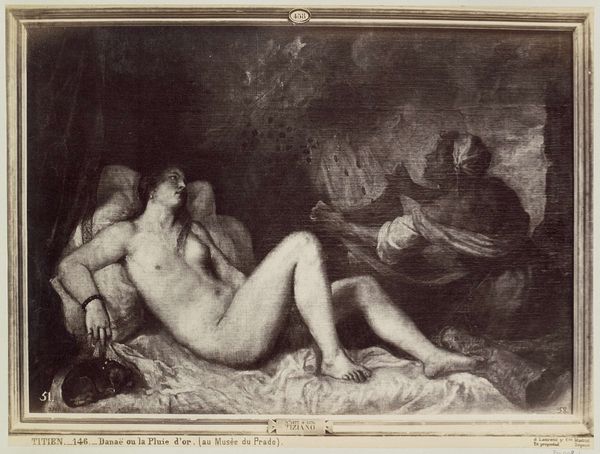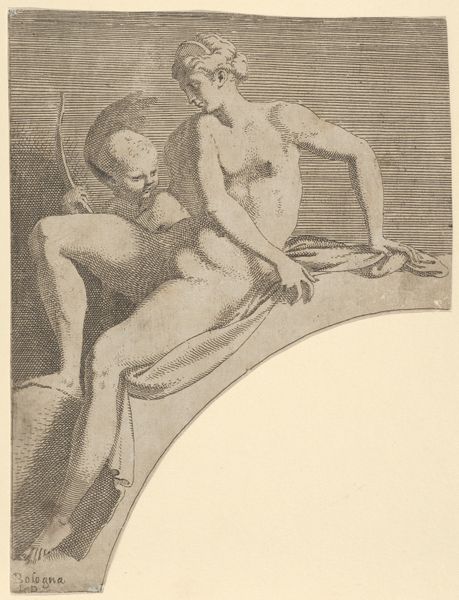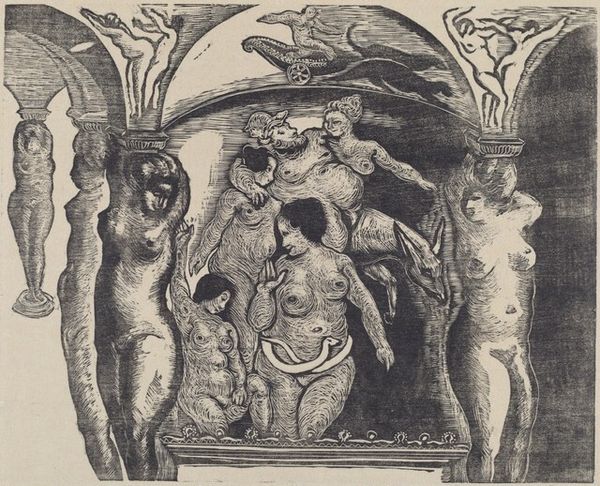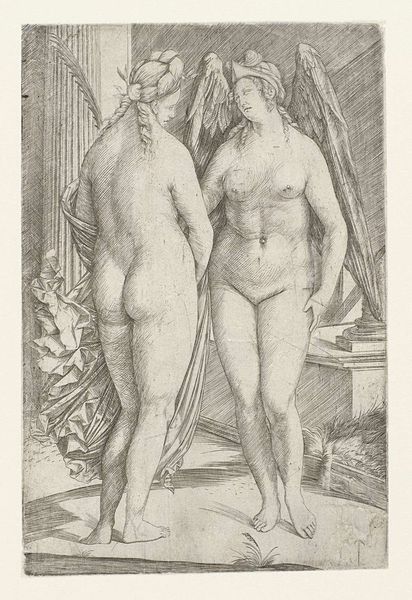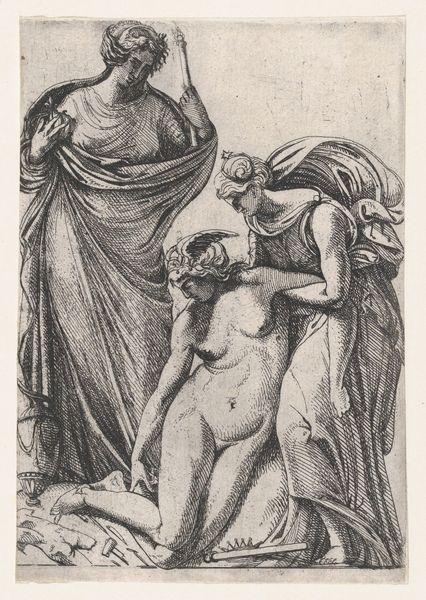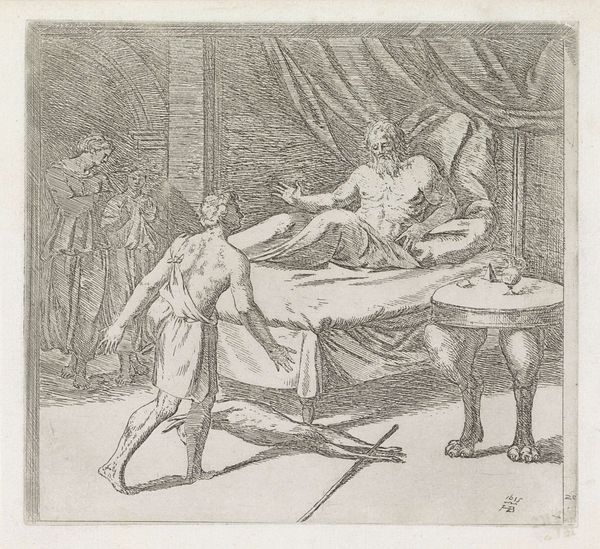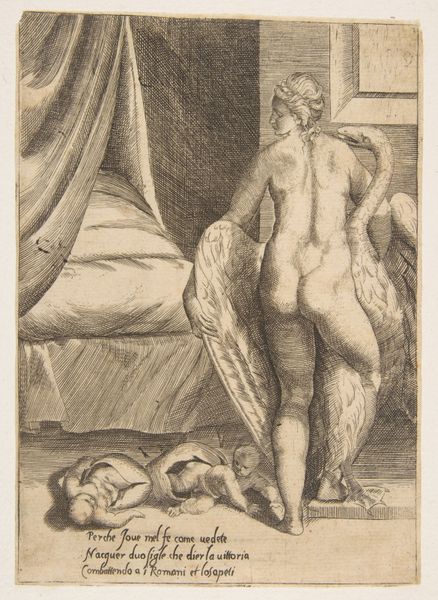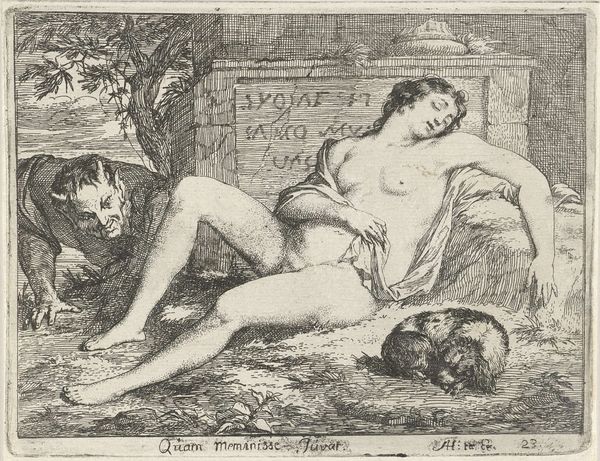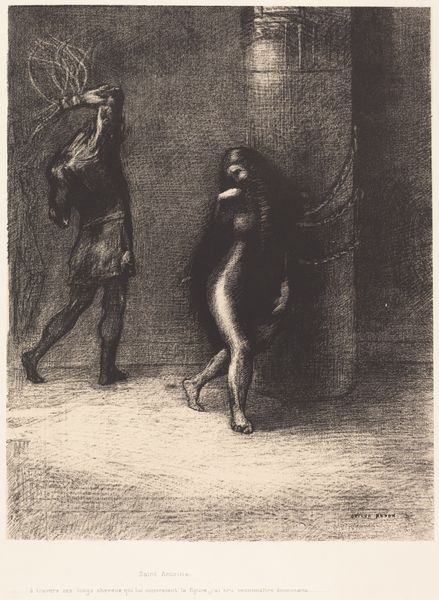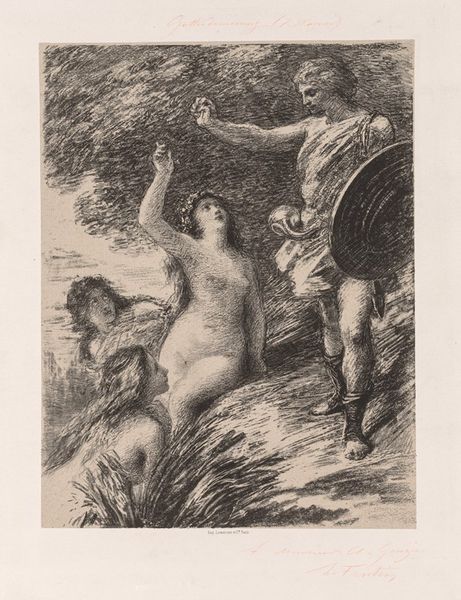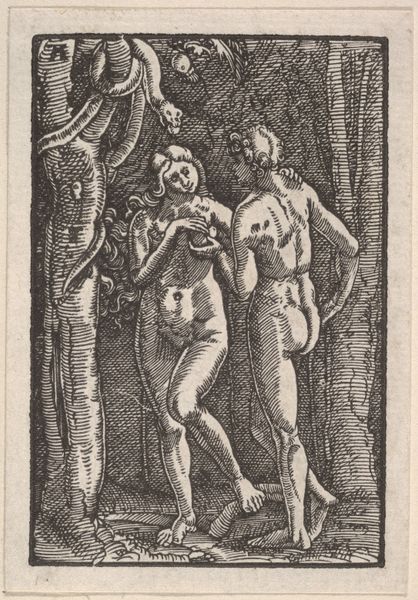
#
narrative-art
# print
#
figuration
#
pencil drawing
#
portrait drawing
#
erotic-art
Copyright: National Gallery of Art: CC0 1.0
Editor: This intriguing print is "Gargantua: Chapter LVII" by Bernard Reder. The title certainly hints at a narrative element. What jumps out at me is its unsettling and playful atmosphere – almost theatrical. How do you interpret the staging and figures within their socio-historical context? Curator: That's a keen observation. This print reflects the socio-political unease percolating in Europe between the wars, filtered through Reder's distinct expressionist style. Note the contorted figures, echoing similar distortions in German Expressionism, which visualized societal anxieties and challenged academic traditions. Editor: I see that. And what about the specific context that led Reder to this piece and its title? Curator: The title "Gargantua" is taken from François Rabelais's satirical novel, right? Rabelais critiques institutions through grotesque and often lewd humor. Reder similarly seems to use figuration to probe the boundaries of propriety. What purpose do you think his figures serve in a climate where definitions of identity were shifting? Editor: Perhaps a questioning of social and personal roles? The nudity, combined with theatrical pose, seem to invite both scrutiny and amusement, defying traditional expectations. Almost like a stage for society's projections. Curator: Precisely. Reder engages with art's public role here, and challenges conventional displays of femininity by positioning these figures somewhere between classical nudes and avant-garde distortions, which can cause one to rethink their own established standards for appreciating art. Editor: That’s insightful! I now understand how it functions not just as an illustration but also a critique of its own era. Curator: Yes, this work underscores that imagery is never neutral; it's always imbued with the social and political forces that shape both its creation and reception.
Comments
No comments
Be the first to comment and join the conversation on the ultimate creative platform.
